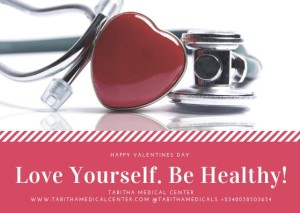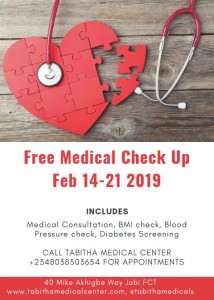Valentine’s Day has rolled around again this year, the annual holiday to celebrate love, romance and the validity of your Facebook relationship status. It is also a time to celebrate the increased revenue generated by greeting card makers, gift shops and producers of chocolates and other sweet treats. In fact, one could say that Sugar is the official food group of Valentine’s Day. There has been a lot of attention paid lately to sugar and its effects on health, however excessive sugar often has more effects than people realize.
First of all, how much is too much? The American Heart Association recommends that the maximum daily intake of added sugar for men should be 37.5 grams or 9 teaspoons, and for women, 25 grams or 6 teaspoons. For comparison, there is about 35grams or 6 teaspoons of sugar in a 330ml can of Coca-cola.
It is also important to indicate that we are talking here about ‘added sugars’ as opposed to naturally occurring sugars such as found in fruits and vegetables. Naturally occurring sugars come packaged with other nutrients and fibers which cause them to be absorbed at an even rate by the body. Added sugars usually have little to no added nutrients, and are dumped very quickly into the bloodstream which causes the body to scramble as it tries to handle the sudden influx.
Added sugars are also sneaky. They come in various disguises on nutrition labels with names such as glucose, sucrose, fructose…basically all the –ose’s. You can also find words like agave, syrup, nectar, molasses and more exotic names like barley malt and maltodextrin. Basically, like Nigerians in diaspora, sugar is everywhere.
So what are some of the negative effects of a high-sugar diet?
- Weight gain: This is not news to most people. Sugar is broken down into glucose that the body uses for energy. If you are taking in more than you are using, the rest gets stored as fat. Foods high in added sugars and are notoriously easy to consume in large quantities.
- Low energy and Sugar Addiction: After the initial ‘sugar high’ gotten after ingesting food with high sugar content, the ensuing ‘crash’ leaves people feeling tired, mentally slow and even irritable. These energy fluctuations lead to sugar cravings and so the cycle goes. The fact remains however whether due to low energy or just craving something sweet, the more sugar you take, the more you crave. Some studies have even claimed sugar is 8 times as addictive as cocaine!
- Heart disease: There are many direct and indirect pathways that relate high sugar intake to cardiovascular disease. The presence of excess sugar in the blood prevents the blood vessels from being able to relax normally, which can lead to hypertension. Excess blood sugar also leads to high levels of ‘bad’ cholesterol (also known as LDL) which can clog vessels and which all negatively affect the heart.
- Increased risk for Diabetes: Increased levels of blood sugar, lead to a rise in the enzyme insulin. Insulin is responsible for storage of excess blood sugar by signaling the cells, muscles and liver to pick up the extra blood sugar for storage. When insulin is constantly being secreted, the body becomes less sensitive to it leading to insulin resistance. More and more insulin is produced putting a strain on the pancreas where insulin is produced and which can eventually progress to full blown diabetes, which has a wide range of its own complications.
- Joint pain and Skin issues: This is all due to inflammation caused by having high amounts of sugar in the body. This inflammation can exacerbate joint problems which are usually due to inflammation. It also increases chances of developing rheumatoid arthritis in the first place. Chronic inflammation also affects the structure of the skin. The excess sugar causes a chain of reactions that affect collagen and elastin, the molecules that give skin its elasticity. This can result in wrinkles and exacerbate other skin conditions such as acne.
- Dental issues: High-sugar foods take a toll on teeth such as cavities, and leave behind quite the buffet for the naturally occurring bacteria in the mouth. The bacteria multiply leading to a host of other problems both in the mouth and other parts of the body. Notably, there are certain heart conditions linked to poor oral health.
Basically excessive sugar intake can affect every part of the body. The problem lies in awareness of the source and amount of sugar we consume daily.
So in celebration of the season of love, perhaps we could focus more on being the apple of one’s eye and less on being the sugar in the tea.






Add a Comment